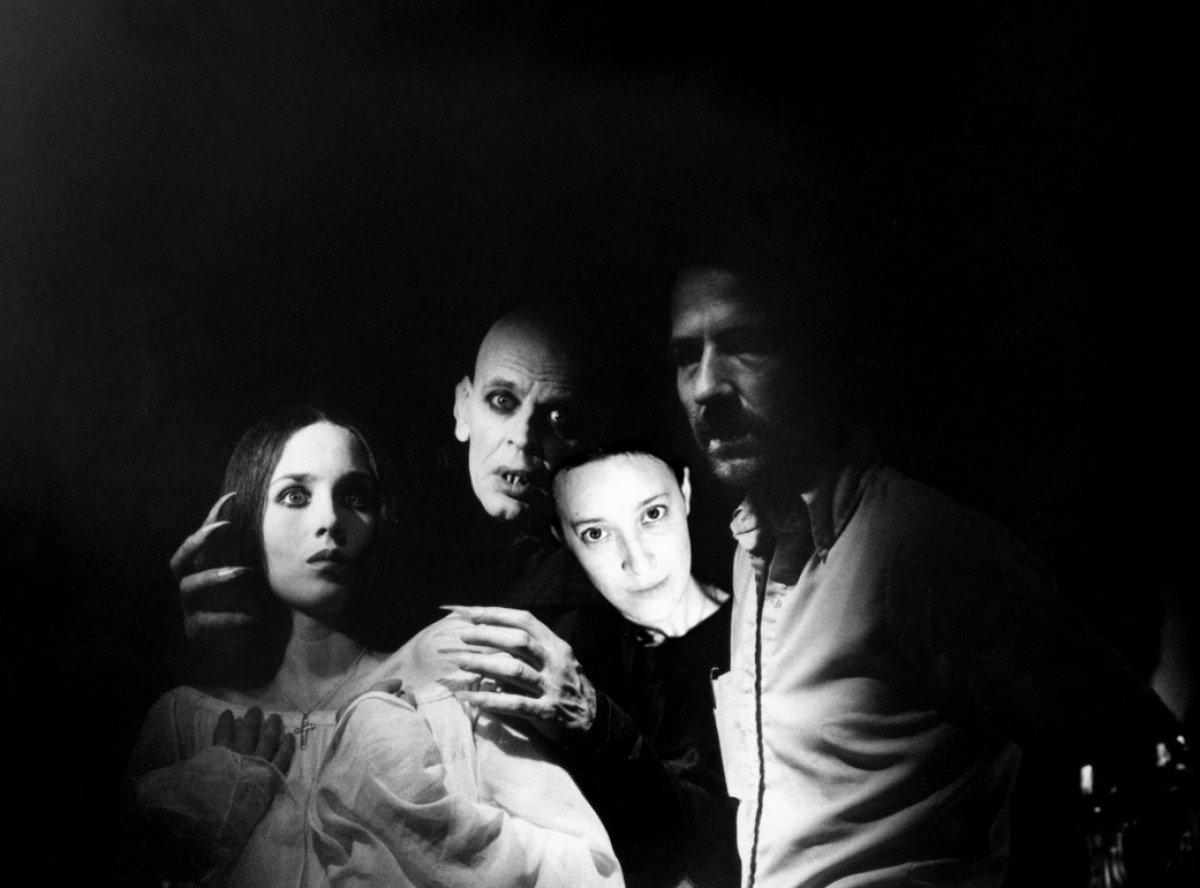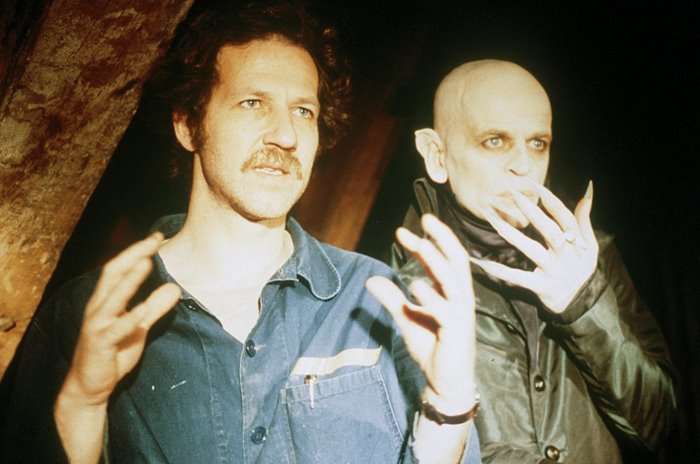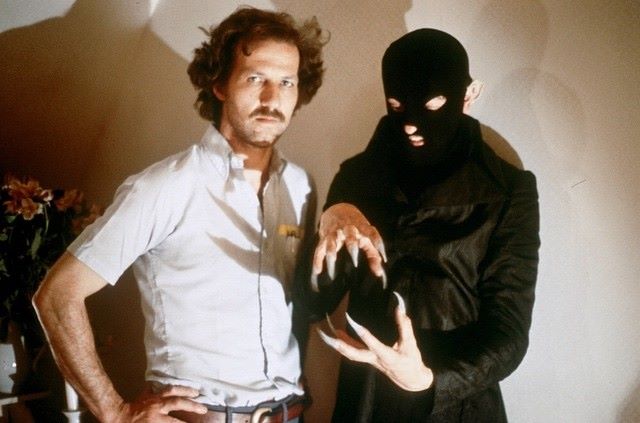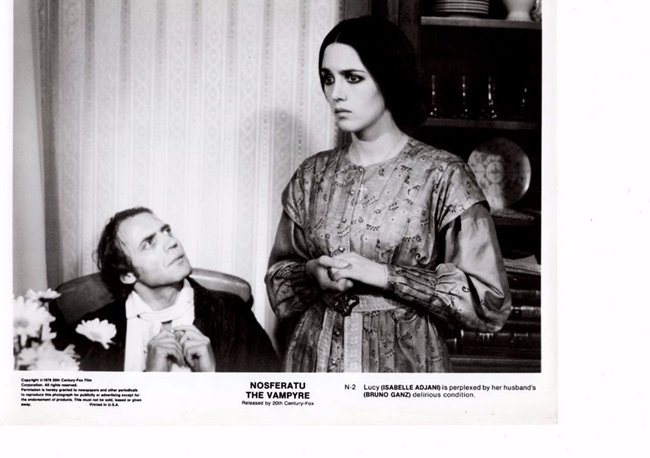Every month, we present Staff Picks at the Oriental Theatre - crazy classics, obscure delights, and cinematic masterpieces curated by the incredible Milwaukee Film and Oriental Theatre staff! Before each film screens, we're having a brief chat with each staff member about their selection. Kicking off this initiative? Our brilliant Education Manager, Marielle! Read on...
.jpg.aspx?width=700&height=518)
What's your name?
Marielle Allschwang!
What's your job title at Milwaukee Film? What does that entail?
Education Manager. I help facilitate youth education and educator services programs, like our Education Screenings, Reel Talks, Educator Fellowship, and our very new Teen Programs.
What movie did you pick?
NOSFERATU: THE VAMPYRE (dir. Werner Herzog)
When did you first see said movie?
I kind of stumbled on it through this modern marvel, the internet, and ordered it on DVD. It came with discs for both the German and English version. I started with the German one, alone in the dark, and I fell in love. I never expected to see a "perfect moment" caught on film, but I I held my breath a few times, feeling I was witnessing just that.
In ten words or less, tell us why we HAVE to see this movie!
Oh gosh. See previous note about perfection caught on film. You don't want to miss that. (ed. note: Sixteen words.)

Okay - expand on that - why did you make this your staff pick?
I love vampire stories, and I especially love vampire movies, and I especially love Werner Herzog’s NOSFERATU: THE VAMPYRE. It took me awhile to try to pinpoint why: I reviewed Bram Stoker’s Dracula, spent a few months reading Maggie Nelson’s The Art of Cruelty... it was well worth the read but I didn’t find the on-the-nose passage I was looking for. So this morning, I thought about books and movies I liked growing up. Maybe my first “favorite film” was Citizen Kane, because my English teacher had us analyze it so thoroughly that for the first time I understood what film was as an art form; that same year, he had us watch a documentary about the Donner Party and write a sentence about their story that told of irony, using ironic syntax. I didn’t write a very spellbinding sentence but, reflecting on this, I suddenly found Nosferatu, hiding there, sleeping upright.
Imagine that somewhere in a lightless, cobwebbed corner tucked deep inside a vast and empty mansion rests a sleight, hungry ghost. Soulless and emaciated by the system that sustains him, he will eat the world for his own survival. This must sound familiar to every generation, whether their Nosferatu is a bloodthirsty vassal king, a lonely Citizen Kane, a government possessed by greed at the expense of entire populations and ecosystems, or society’s karmic debt personified. It’s no wonder that Nosferatu is undead. To be undead is to embody a death so final it negates itself: one is alive forever in their irrevocable and irredeemable deadness. This is what legend tells us we become when we trade our conscience for continuance and power. And if we commit to the structure of this tale and its language of irony, it makes sense that the only way out of undead is to awaken the heart by stabbing it to death.

Nosferatu is terrifying and unholy, and yet I love him. Perhaps I feel a kind of responsibility--as an image born in our collective unconscious, we are all his parents. And perhaps I’m mesmerized by that evocative name: Nosferatu. It feels vertical, pillar-like, and soft, like a velvet cloak dutifully brushing across a cold floor behind a floating ghoul. And there is something almost sickly in the name--a nasal snivel followed by a sneeze. In Latin, Nosferatu can be broken up into NOS: “our”, “FERA: “feral, wild”, TU: the familiar “you.”
Our feral you.
I wondered what kinds of images might have lit up in Herzog’s German-speaking mind when he heard Nosferatu. I got out my German-English dictionary, out of curiosity.
I couldn’t find any exact matches, but I was intrigued by the words that sat nearby on the tongue. The closest word I found to “Nos” there was “Not,” which means “need, want, distress, emergency” (or “Note”, which pretty much means “note.”) I found “fern” which means, “distant, remote, far away.” “Atmen” means “breathe”, “atzen” means “feed,” and “ӓtzen” means “corrode.”
Need distant nourishment.
Distress: Need remote life.
I play with combining the Latin and German:
Our faraway corrosion.
I found myself going down quite the rabbit hole...so I’ll turn back to the film itself before I find myself in Renfield territory.
This film, to me, is a whole being. It is a harrowing fairy tale told in the language of some of our best-known harrowing fairy tales (German). But it was filmed in English, too (you won’t get to see that one on Saturday, though). An affirmation, maybe, of my language obsession with this story. Both versions tremble over a chilling score by Popl Vuh, Germany’s prog-rock counterpart to Goblin (shout-out to anyone who attended Suspiria in November). Shortly after seeing NOSFERATU: THE VAMPYRE, Kate Bush sampled Popol Vuh’s score on her glorious song “Hello Earth” for her glorious album, Hounds of Love.

It’s fitting that Klaus Kinski, an elemental himself and a dangerous friend, for Herzog, was host to our vampyre. Our male protagonist is played by a literal angel (Bruno Ganz, who fell from heaven in Wings of Desire). One of the creators of Mouvement Panique, Roland Topor, sets panic in motion. Isabelle Adjani’s eyes swallow and transmute everything in and beyond her sight. Together the cast and Herzog create a choreography of exquisite, perfect gestures. Their timing and intensity and placement in space all communicate those “ecstatic truths” Herzog claims to impart. There is something reminiscent of Noh theatre here, where movement has meaning, where the body is vital to transmitting the story--and appropriately so, as our bodies are vitalized by the real and most hidden hero of Nosferatu: the quietly rushing, memory-laden, oxygenating, dark red blood.
Special thanks to the incredible Marielle Allschwang for taking the time to participate! See Nosferatu the Vampyre this Saturday evening at 9:30 PM at the Oriental Theatre! TICKETS AVAILABLE HERE.

Posted by: Tom Fuchs